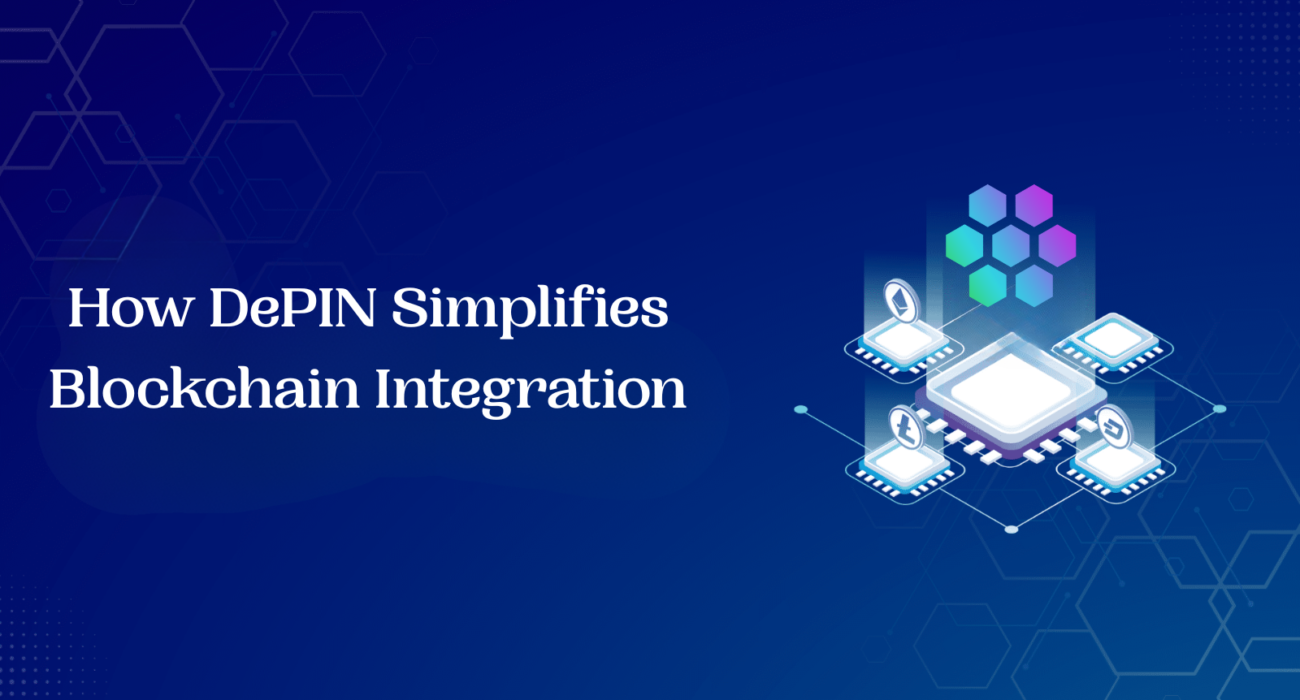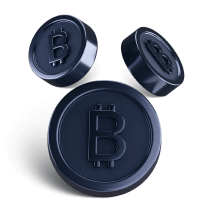Blockchain technology has revolutionized industries by offering decentralized, transparent, and secure solutions. However, integrating blockchain into existing systems is not always straightforward. Scalability issues, high costs, and interoperability challenges often make blockchain adoption complex for businesses and developers. This is where DePIN (Decentralized Physical Infrastructure Network) steps in. By leveraging decentralized networks, DePIN simplifies blockchain integration, making it more accessible, efficient, and cost-effective.
In this blog, we will explore how DePIN simplifies blockchain integration, the key benefits it offers, and its impact on the future of decentralized technology.
Understanding Blockchain Integration Challenges
Before diving into how DePIN simplifies blockchain integration, it is essential to understand the common challenges businesses and developers face when adopting blockchain technology.
1. Scalability Issues
One of the biggest hurdles in blockchain adoption is scalability. Traditional blockchain networks, such as Bitcoin and Ethereum, experience congestion as the number of transactions increases. This results in slower processing times and higher transaction fees, limiting their real-world applications.
2. Interoperability Gaps
Many blockchain networks operate in isolation, making it difficult for them to communicate and exchange data with each other. Without proper interoperability, businesses face inefficiencies in cross-chain transactions, which can slow down operations and hinder innovation.
3. High Operational Costs
Blockchain infrastructure requires significant investment in hardware, software, and maintenance. Setting up and maintaining nodes, validators, and consensus mechanisms can be expensive, making blockchain integration a costly endeavor for businesses.
4. Security and Trust Concerns
While blockchain is inherently secure, vulnerabilities still exist. Smart contract exploits, hacking attempts, and centralized failures in hybrid systems create concerns about data integrity and system security. Businesses must adopt additional security layers, adding to the complexity of blockchain integration.
What is DePIN and How Does It Work?
DePIN (Decentralized Physical Infrastructure Network) is an emerging technology designed to bridge the gap between blockchain and real-world infrastructure. Unlike traditional centralized networks, DePIN operates on a decentralized model, leveraging distributed computing power, storage, and data transmission to enhance blockchain functionality.
DePIN enables blockchain integration by eliminating reliance on centralized service providers. Instead of running applications on centralized cloud servers, DePIN allows businesses to access decentralized infrastructure, making blockchain adoption seamless and cost-effective.
Key Ways DePIN Simplifies Blockchain Integration
1. Enhanced Interoperability
One of the major advantages of DePIN is its ability to enhance interoperability between blockchain networks. With cross-chain compatibility, different blockchain platforms can communicate effortlessly, enabling smooth data transfer and transactions. This removes the barriers that previously hindered blockchain adoption, allowing businesses to leverage multiple networks without compatibility issues.
For instance, a financial institution using Ethereum for smart contracts can now interact with a supply chain platform running on Solana, thanks to DePIN-powered interoperability solutions.
2. Cost-Efficient Infrastructure
Blockchain integration often requires substantial financial investment in setting up decentralized networks. However, DePIN simplifies blockchain integration by reducing operational costs. Instead of relying on expensive centralized data centers, DePIN leverages decentralized nodes, allowing businesses to cut costs while maintaining efficiency.
This cost efficiency makes blockchain more accessible to startups, enterprises, and developers who might otherwise struggle with high infrastructure expenses.
3. Improved Security and Reliability
Security is a crucial concern in blockchain adoption. DePIN enhances security by decentralizing computing power and data storage, reducing the risk of hacks and system failures. Unlike centralized systems, where a single point of failure can compromise an entire network, DePIN distributes data across multiple nodes, ensuring greater resilience against cyber threats.
Moreover, DePIN utilizes cryptographic encryption and decentralized authentication methods, making transactions and data exchanges more secure.
4. Scalability for Mass Adoption
Scalability is a significant challenge for blockchain networks, but DePIN simplifies blockchain integration by enabling scalable infrastructure. Instead of congesting a single network, DePIN spreads workloads across decentralized nodes, optimizing transaction speeds and reducing latency.
For example, DePIN can support high-frequency transactions in DeFi (Decentralized Finance) platforms without compromising efficiency, making blockchain applications more scalable and user-friendly.
5. Real-World Applications & Adoption
DePIN is already revolutionizing industries by simplifying blockchain integration. Here are some key areas where DePIN-powered blockchain solutions are making an impact:
– Finance and Banking
DePIN enhances decentralized finance (DeFi) by providing a scalable and secure infrastructure for financial transactions, lending protocols, and smart contract execution.
– Healthcare Data Management
By utilizing decentralized networks, medical institutions can securely store and share patient records while ensuring privacy and compliance with data protection regulations.
– Supply Chain Transparency
DePIN improves supply chain management by enabling real-time tracking and verification of goods, reducing fraud and inefficiencies in logistics.
– Decentralized Cloud Storage
DePIN offers a cost-effective alternative to traditional cloud storage providers by utilizing distributed networks, ensuring data security and accessibility.
– Smart Cities and IoT
DePIN supports IoT (Internet of Things) applications by providing a decentralized infrastructure for data sharing and automation in smart cities.
As DePIN continues to simplify blockchain integration, SRP Token stands at the forefront, offering a secure and scalable investment opportunity in this evolving landscape
The Future of Blockchain Integration with DePIN
As blockchain adoption grows, the role of DePIN in simplifying blockchain integration will become even more significant. Here are some key trends that will shape the future:
1. Mass Adoption of Decentralized Infrastructure
With DePIN offering a cost-effective and scalable alternative to traditional systems, more businesses will transition toward decentralized infrastructure for their blockchain needs.
2. Enhanced Interoperability Solutions
Future advancements in DePIN technology will further improve cross-chain interoperability, making blockchain networks more interconnected and efficient.
3. AI and Blockchain Convergence
The integration of artificial intelligence (AI) and blockchain will be facilitated by DePIN, allowing smart contract automation and predictive analytics in various industries.
4. Mainstream Enterprise Adoption
Large corporations and enterprises will increasingly adopt DePIN-powered blockchain solutions to enhance security, reduce costs, and streamline operations.
5. Government and Regulatory Adoption
With increased awareness of decentralized infrastructure benefits, governments may integrate DePIN into public sector applications, ensuring transparency and efficiency in governance.
Conclusion
In the evolving landscape of blockchain technology, DePIN is a game-changer. It addresses critical challenges such as scalability, security, interoperability, and cost efficiency, making blockchain adoption smoother and more practical for businesses and developers.
By leveraging decentralized infrastructure, DePIN removes barriers that previously hindered blockchain integration, paving the way for mass adoption across industries. Whether it’s finance, healthcare, supply chain, or IoT, DePIN is set to revolutionize the way blockchain networks operate.
As the demand for decentralized solutions continues to grow, understanding how DePIN simplifies blockchain integration will be crucial for businesses looking to stay ahead in the digital transformation journey.
If you’re considering blockchain adoption, exploring DePIN-powered solutions could be the key to a more efficient, secure, and cost-effective integration process.

 China
China Russia
Russia India
India









